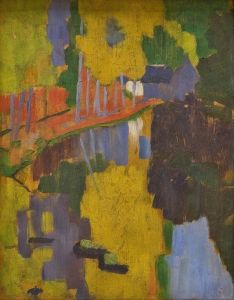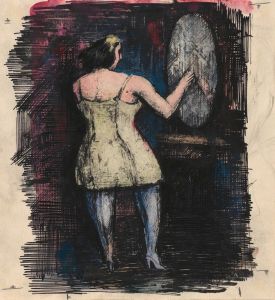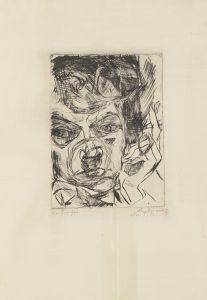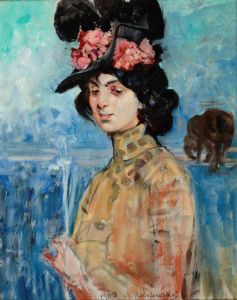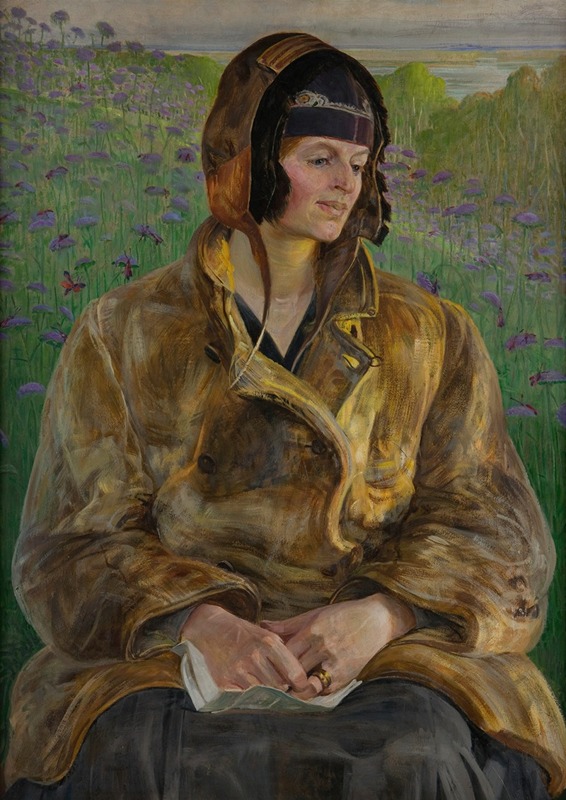
Ellenai
A hand-painted replica of Jacek Malczewski’s masterpiece Ellenai, meticulously crafted by professional artists to capture the true essence of the original. Each piece is created with museum-quality canvas and rare mineral pigments, carefully painted by experienced artists with delicate brushstrokes and rich, layered colors to perfectly recreate the texture of the original artwork. Unlike machine-printed reproductions, this hand-painted version brings the painting to life, infused with the artist’s emotions and skill in every stroke. Whether for personal collection or home decoration, it instantly elevates the artistic atmosphere of any space.
"Ellenai" is a painting by the Polish artist Jacek Malczewski, created in 1907. Malczewski, born on July 15, 1854, in Radom, Poland, is one of the most prominent figures in Polish Symbolism and is known for his unique style that blends realism with symbolic and allegorical elements.
The painting "Ellenai" is part of Malczewski's broader exploration of Polish national identity, mythology, and personal introspection. The work reflects his deep engagement with the themes of patriotism, sacrifice, and the struggle for independence, which were central to his oeuvre, especially given the historical context of Poland's partitions and the subsequent loss of sovereignty.
"Ellenai" depicts a young woman, Ellenai, who is a character from the poem "Anhelli" by Juliusz Słowacki, a renowned Polish Romantic poet. In Słowacki's poem, Ellenai is a Siberian exile who embodies purity, suffering, and spiritual strength. The poem itself is a significant work in Polish literature, often interpreted as an allegory of the Polish nation's plight under foreign domination.
In the painting, Ellenai is portrayed with a serene yet melancholic expression, emphasizing her inner strength and the sorrow of her exile. Malczewski's use of color and light in the painting enhances the emotional depth of the subject. The background is typically sparse, focusing the viewer's attention on Ellenai's figure and her expressive face. This minimalist approach is characteristic of Malczewski's symbolic works, where the emphasis is placed on the emotional and psychological state of the characters rather than on detailed settings.
Malczewski's technique in "Ellenai" showcases his mastery of both form and symbolism. He often employed a muted color palette, which in this painting, helps to convey the somber mood and the sense of isolation experienced by the character. The delicate brushwork and the careful attention to Ellenai's facial features and posture further highlight Malczewski's skill in capturing the human condition.
Jacek Malczewski's contribution to Polish art is significant, and "Ellenai" is a testament to his ability to intertwine personal, national, and mythological narratives. His works often reflect his own experiences and the broader socio-political context of Poland during his lifetime. Malczewski's paintings, including "Ellenai," continue to be celebrated for their emotional intensity, symbolic richness, and technical excellence.
"Ellenai" remains an important piece in Malczewski's body of work and is a poignant reminder of the enduring themes of exile, resilience, and the quest for identity that have shaped much of Polish art and literature. The painting is housed in the National Museum in Warsaw, where it continues to be admired by art enthusiasts and scholars alike for its profound emotional impact and its place within the broader narrative of Polish Symbolism.






